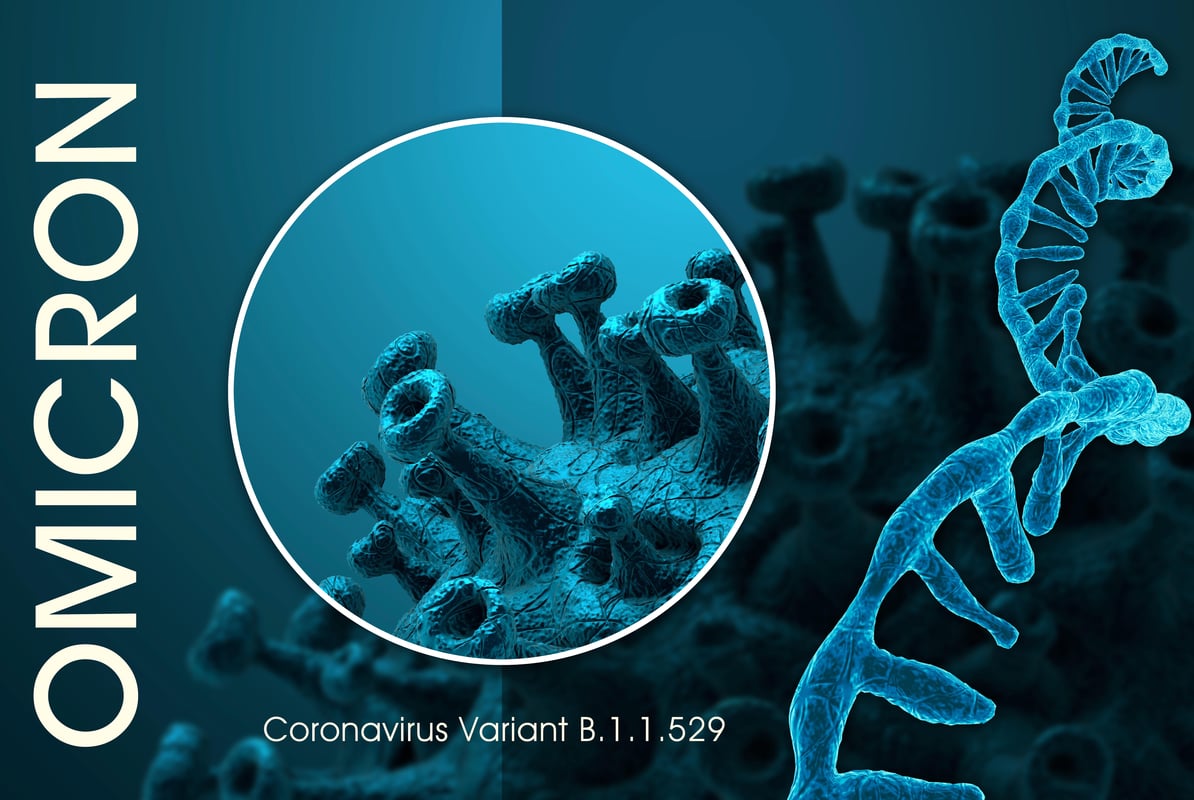CDC Shrinks COVID Isolation Period to 5 Days for Asymptomatic Infections

TUESDAY, Dec. 28, 2021 (HealthDay News) – People who test positive for COVID-19 or who are exposed to the virus but have no symptoms will no longer have to isolate or quarantine for as long a time period, the U.S. Centers for Disease Control and Prevention said Monday.
Instead of 10 days, the isolation and quarantine time periods in such cases are now five days, followed by five days of wearing a mask around others, the agency recommended in updated guidelines.
The move comes as disruptions to daily life have soared while the highly transmissible Omicron variant starts to surge across the country. Virus-related staffing shortages have wreaked havoc on holiday travel, prompting the cancellations of thousands of flights, and disrupted the normal workings of the health care industry, restaurants and retail.
Still, the CDC stressed the change was prompted by science demonstrating that the majority of COVID-19 transmission occurs one to two days before symptoms surface and two to three days after symptoms start.
“The Omicron variant is spreading quickly and has the potential to impact all facets of our society. CDC’s updated recommendations for isolation and quarantine balance what we know about the spread of the virus and the protection provided by vaccination and booster doses,” CDC Director Dr. Rochelle Walensky said in a statement. “These updates ensure people can safely continue their daily lives.”
Under the new recommendations, people who test positive for the virus should isolate for five days. If they are asymptomatic at that time, they may leave isolation if they continue to mask for five days to minimize the risk of infecting others, the agency said.
The CDC also updated the recommended quarantine period for those exposed to COVID-19.
Recommendations vary for those who have received a booster compared to those who are unvaccinated. Individuals who have received their booster do not need to quarantine but should wear a mask for 10 days after exposure.
People who are not vaccinated or for whom it has been more than six months since they received their second mRNA dose or more than two months after their Johnson & Johnson dose and they have not gotten a booster should quarantine for five days followed by strict mask use for another five days, the CDC said.
If that is not possible, they must wear a well-fitting mask at all times when around others for 10 days after exposure.
“Prevention is our best option: get vaccinated, get boosted, wear a mask in public indoor settings in areas of substantial and high community transmission, and take a test before you gather," Walensky said.
The best practice would be to take a COVID-19 test five days after the exposure, the CDC added.
Having COVID-19 symptoms does change the advice. If symptoms occur, individuals should immediately quarantine until a negative test confirms symptoms are not attributable to COVID-19, the CDC said.
New data from South Africa and the United Kingdom have shown vaccine effectiveness against infection for two doses of an mRNA vaccine to be approximately 35%. A COVID-19 vaccine booster dose restores that effectiveness to about 75%, the CDC noted.
The agency strongly encourages vaccination for everyone 5 and older and boosters for everyone 16 and older because vaccination dramatically decreases the risk of severe disease, hospitalization, and death from COVID-19. Still, only 62% of eligible Americans are fully vaccinated and only 32% have gotten booster shots, CDC data shows.
More information
The World Health Organization has more on COVID-19.
SOURCE: Centers for Disease Control and Prevention, news release, Dec. 27, 2021
Related Posts
Un nuevo tratamiento para la EM se muestra promisorio en un ensayo
JUEVES, 25 de agosto de 2022 (HealthDay News) -- Una terapia experimental de...
Ad26.RSV.preF-RSV preF Protein Vaccine Immunogenic in Seniors
THURSDAY, Feb. 16, 2023 (HealthDay News) -- An adenovirus serotype 26...
Cemented Hemiarthroplasty for Hip Fracture Improves QOL for Those 60 and Older
THURSDAY, Feb. 10, 2022 (HealthDay News) -- The difference in health-related...
Vinculan un brote de listeria con quesos blandos que se venden en Albertsons y Whole Foods
LUNES, 3 de octubre de 2022 (HealthDay News) -- Las autoridades de salud de EE....
